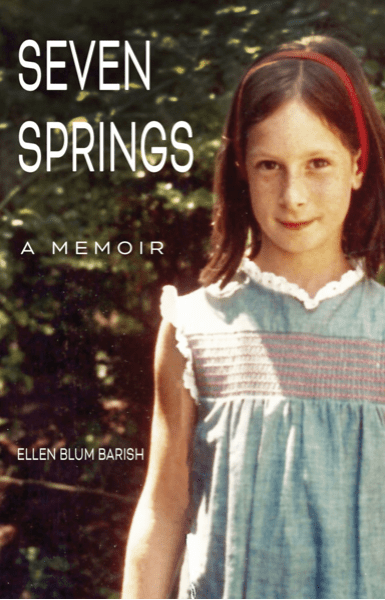
In her new memoir Seven Springs Ellen Blum Barish explores big questions about what makes a life. She does so in two compelling narrative threads: one examining a car accident that occurred when she was a girl, and the aftermath of that experience; the other delving into the underpinnings of her faith life, and how that faith informs her relationships and her place in the world.
Barish weaves these two threads together, taking the reader to the scene of the accident, to neighborhoods and locations where we meet friends and family, to class reunions and visits with her parents of over two decades. “I had come so close to the sharp edge of death,” she writes, without ever unpacking that experience. Over the years, what happened to her, to her friends, and how her family handled that scrape with death lies buried “under a blanket of quiet.” Similarly her curiosity about God is buried “under shame and fear.”
This “psychospiritual-archeological dig,” as Barish calls it, reveals the usefulness of a faith tradition. Judaism as she comes to know it is practical. But come to know it she must. Her parents are not practicing Jews. As a child, when she asks her father if they believe in God, he tells her to go ask her mother. Her mother’s answer–she says she doesn’t know–leads Barish to a position of unbelief that lasts into her adulthood.
When she becomes a mother, she engages the tradition. The fruit of that study informs this memoir. “Judaism,” Barish observes, “is by its very nature an ongoing conversation.” That conversation, which she joins and shares, enriches this absorbing story.